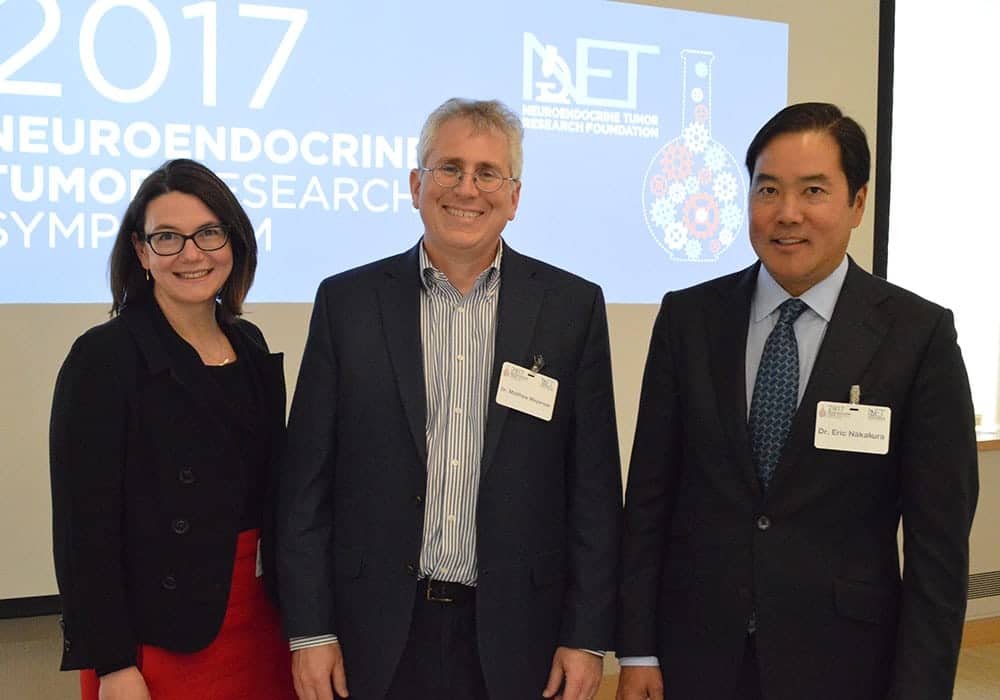Eric Nakakura and Research Group Awarded $1.2M Grant to Study Small Intestinal Neuroendocrine Tumors
Eric Nakakura, M.D., Ph.D., Associate Professor of Surgery at UCSF and a leading authority on neuroendocrine tumors of the gastrointestinal tract and pancreas, is among a team of researchers awarded $1.2M grant by the Neuroendocrine Tumor Research Foundation (NETRF) to elucidate the causes of small intestinal neuroendocrine tumors (SI-NETs). Dr. Nakakura said the research would help to unlock the mysteries of the disease and lead to more effective potentially curative treatments:
“This project arose from unexpected clinical observations of a rare disease, which has puzzled all for over a century. We are using these new insights into SI-NETs to find out how and why they occur, so we can we better treat our patients and ultimately find a cure.”
SI-NETs are a subset of neuroendocrine tumors, a class of rare, slow-growing cancers. Most patients with small intestinal neuroendocrine tumors are not surgical candidates because the disease is typically too far advanced or has metastasized to other organs by the time of diagnosis.
“For most patients with SI-NETs, the diagnosis is made late after it has already spread to neighboring lymph nodes and the liver. Recent advances in surgery, medical therapies, and molecular targeted therapy can dramatically improve the length and quality of life for patients; however, earlier diagnosis and better therapies are desperately needed,” says Dr. Nakakura.
International Scientific Collaboration
The scientific collaboration includes Matthew Meyerson, M.D., Ph.D., Dana-Farber Cancer Institute, Harvard Medical School; Eric Nakakura, M.D., Ph.D., University of California, San Francisco; Chrissie Thirlwell, B.Sc., M.D., Ph.D., University College London Cancer Institute.
“Our approach was to assemble an international dream team of NET experts bringing together novel clinical insights, state-of-the art genetic and epigenetic technologies, and new clues into the cell of origin of SI-NETs,” says Dr. Nakakura. Dr. Nakakura and colleagues will analyze tumor tissue to identify inherited, non-inherited genetic, environmental, epigenetic, and infectious causes of SI-NETs. “We are keeping an open mind and will let the data show us what causes SI-NETs”.

Accelerator Grantees (left to right) Chrissie Thirwell, MD, PhD, University College London Cancer Institute, Matthew Meyerson, MD, PhD, Dana-Farber Cancer Institute; and Eric Nakakura, MD, PhD, University of California, San Francisco
